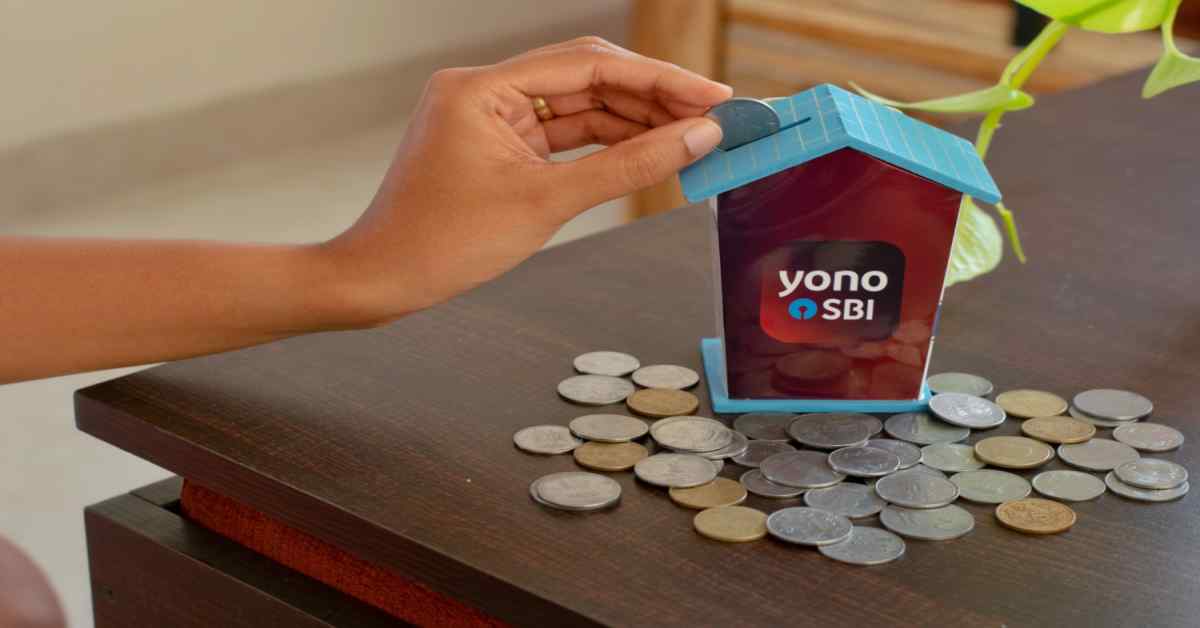Table of Contents
Quality Service Guarantee Or Painting Free

Get a rental agreement with doorstep delivery

Find the BEST deals and get unbelievable DISCOUNTS directly from builders!

5-Star rated painters, premium paints and services at the BEST PRICES!
Loved what you read? Share it with others!


Submit the Form to Unlock the Best Deals Today
Check Your Eligibility Instantly

Experience The NoBrokerHood Difference!
Set up a demo for the entire community
Plot Loans vs Home Loans: A Comprehensive Comparison
Table of Contents
A plot loan and a home loan are both types of mortgages that allow individuals to purchase a piece of property. However, there are some key differences between the two that are important to understand when deciding which type of loan to apply for. A plot loan is specifically for the purchase of a plot of land, whereas a home loan can be used to purchase a completed home or to construct a new one. Additionally, the terms and requirements for these loans may vary depending on the lender and the type of property being purchased.
Recommended Reading

Home Loan for Women in India - Interest Rates and Benefits
January 31, 2025
4637+ views

What is Home Loan Sanction Letter and Why is it So Important?
January 31, 2025
9332+ views

Buying Your Dream Home? These Are the Home Loan Documents Required in India!
January 31, 2025
2925+ views

REPO Rate Linked to Home Loans
January 31, 2025
5136+ views

Home Loan Insurance: Protecting Your Investment
January 31, 2025
13203+ views
In this blog post, we will explore the differences between plot loans and home loans in more detail and discuss the pros and cons of each option.
What is a Plot Loan?

A plot loan in India is a type of loan offered by banks and financial institutions to individuals for the purpose of purchasing land or plots for the construction of a house or building. The loan can be used to purchase both residential and commercial plots of land.
Quality Service Guarantee Or Painting Free

Get a rental agreement with doorstep delivery

Find the BEST deals and get unbelievable DISCOUNTS directly from builders!

5-Star rated painters, premium paints and services at the BEST PRICES!
The loan amount is typically based on the value of the plot and the applicant's creditworthiness and income. The loan is usually secured by the plot itself and requires the borrower to provide documentation such as proof of income and property ownership. The interest rate and repayment terms for a plot loan in India can vary depending on the lender and the applicant's credit history.
What is a Home Loan?

A home loan in India is a type of loan offered by banks and financial institutions to individuals for the purpose of purchasing or constructing a house or apartment. The loan can be used to purchase both ready-to-move-in properties and properties under construction. The loan amount is typically based on the value of the property and the applicant's creditworthiness and income.
The loan is usually secured by the property itself and requires the borrower to provide documentation such as proof of income and property ownership. The interest rate and repayment terms for a home loan in India can vary depending on the lender and the applicant's credit history. The loan tenure can vary from 5 years to 30 years and some of the popular schemes offered by the banks are floating rate of interest and fixed rate of interest. Banks also offer tax benefits on home loans in India under section 80C and 24(b) of the income tax act.
Difference Between Plot Loan vs Home Loan

Both plot loans and home loans are used for the purpose of purchasing or constructing a house, but they differ in that a plot loan is used specifically for purchasing a plot of land, while a home loan can be used for both purchasing a house and constructing one on a plot of land the borrower already owns.
In India, plot loans and home loans are both offered by banks and other financial institutions, but they have some key differences.
Eligibility
- For a plot loan, the applicant must own the plot of land on which they plan to construct a house.
- For a home loan, the applicant must either own the property they plan to purchase or have the plot of land on which they plan to construct a house.
Documents
- For a plot loan, the required documents include proof of ownership of the plot, identity proof, and income proof. The documents required for a plot loan in India typically include:
- Proof of identity (Passport, PAN card, Voter ID, etc.)
- Proof of address (Passport, Voter ID, utility bill, etc.)
- Proof of income (Salary slips, income tax returns, bank statements, etc.)
- Proof of business (for self-employed individuals)
- Plot documents (Sale deed, property tax receipt, NOC from the builder, etc.)
- Other documents may be required depending on the bank or financial institution.
- Legal documents of the land like 7/12 extract, Land registration documents, revenue records, development agreement, etc.
- Loan application form with photograph and signature
- Processing fee cheque
- Any other documents as per the bank's requirement
- For a home loan, the required documents include proof of ownership of the property or plot, identity proof, and income proof, as well as plans and estimates for the construction of the house. The documents required for a home loan in India typically include:
- Proof of identity (Passport, PAN card, Voter ID, etc.)
- Proof of address (Passport, Voter ID, utility bill, etc.)
- Proof of income (Salary slips, income tax returns, bank statements, etc.)
- Proof of business (for self-employed individuals)
- Property documents (Sale deed, property tax receipt, NOC from the builder, etc.)
- Other documents may be required depending on the bank or financial institution.
Interest Rates
- Plot loans generally have higher interest rates than home loans, as the risk is considered to be higher for a plot loan. Interest rates on plot loans in India vary depending on various factors such as the lender, loan amount, and the applicant's credit score and income. As of 2023, plot loan interest rates in India typically range from 8.5% to 12% per annum for salaried individuals, and from 12% to 14% per annum for self-employed individuals. Some banks also offer floating interest rates, which are linked to an external benchmark such as the Reserve Bank of India's repo rate.
Additionally, some banks also offer discounted rates for women borrowers and for those who apply for the loan online. It's worth noting that Plot loans have a higher rate of interest as compared to home loans as the plot is an unproductive asset and the risk for the lender is higher.
- The interest rate for a home loan is generally lower than the interest rate for a plot loan. Interest rates on home loans in India vary depending on various factors such as the lender, loan amount, and the applicant's credit score and income. As of 2023, home loan interest rates in India typically range from 6.75% to 9.5% per annum for salaried individuals, and from 8% to 12% per annum for self-employed individuals. Some banks also offer floating interest rates, which are linked to an external benchmark such as the Reserve Bank of India's repo rate.
Additionally, some banks also offer discounted rates for women borrowers and for those who apply for the loan online. Keep in mind that these are subject to change and the current interest rate can be different from the one mentioned here. It's best to check with the bank or financial institution directly for the most up-to-date interest rates.
Tenure and Repayment
- The loan tenure for plot loans is generally shorter than for home loans.
- Repayment options for plot loans may be more limited than those for home loans.
It's important to note that these terms and conditions can vary depending on the lender and individual borrower's circumstances.
It's recommended to research and compare different options to determine which one is best for your individual needs and circumstances, and consult a financial advisor or bank representative to understand the terms and conditions of the loan and also the interest rate before applying.
Eligibility for a Plot Loan

Eligibility for a plot loan in India can vary depending on the lender and the specific terms of the loan. However, generally speaking, the following are the main eligibility criteria for a plot loan:
- Age: The applicant must be at least 18 years old and not more than 70 years old at the time of loan maturity.
- Income: The applicant must have a steady income and a good credit score to be eligible for a plot loan. The minimum income requirements vary by lender, but typically, the applicant should have a regular source of income, such as a salary or business income.
- Citizenship: The applicant must be a citizen of India.
- Property: The applicant must own the plot of land on which they plan to construct a house. The applicant may have to show proof of ownership of the plot, such as the original sale deed, in order to be eligible for a plot loan.
- Credit Score: The applicant should have a good credit score, as it is considered as an important factor in determining loan eligibility.
- Purpose: The loan should be used only for the purpose of purchasing a plot of land and not for any other purpose.
- Repayment ability: The applicant should have the ability to repay the loan as per the terms and conditions of the loan.
Eligibility for a Home Loan

Eligibility for a home loan in India can vary depending on the lender and the specific terms of the loan. However, generally speaking, the following are the main eligibility criteria for a home loan:
- Age: The applicant must be at least 18 years old and not more than 70 years old at the time of loan maturity.
- Income: The applicant must have a steady income and a good credit score to be eligible for a home loan. The minimum income requirements vary by lender, but typically, the applicant should have a regular source of income, such as a salary or business income.
- Citizenship: The applicant must be a citizen of India.
- Property: The applicant must either own the property they plan to purchase or have the plot of land on which they plan to construct a house. The applicant may have to show proof of ownership of the property or the plot, such as the original sale deed, in order to be eligible for a home loan.
- Credit Score: The applicant should have a good credit score, as it is considered as an important factor in determining loan eligibility.
- Purpose: The loan should be used only for the purpose of purchasing or constructing a house and not for any other purpose.
- Repayment ability: The applicant should have the ability to repay the loan as per the terms and conditions of the loan.
- Income Tax returns: Some lenders may ask for the last 2-3 years of income tax returns of the applicant to check the income stability.
Tax Benefits On Plot Loan In India

In India, tax benefits are available for individuals who take out a plot loan for the purpose of constructing a house on the plot. The tax benefits are provided under Section 24 and Section 80C of the Income Tax Act.
- Section 24: Interest paid on a plot loan can be claimed as a tax deduction under Section 24, subject to a maximum limit of Rs. 2 Lakhs per financial year.
- Section 80C: The principal amount repaid towards the plot loan can be claimed as a tax deduction under Section 80C, subject to a maximum limit of Rs. 1.5 Lakhs per financial year.
It's important to note that the tax benefits are only available if the individual starts construction of the house within 3 years of taking the loan and completes construction within 5 years of taking the loan. In case the construction is not completed within 5 years, the benefits availed under section 24 would be reversed.
It's also important to keep in mind that these tax benefits are subject to change as per the policies of the Government of India and the rules and regulations of the Income Tax Act. It's always recommended to consult a tax advisor for the most up-to-date information and for personalized advice on how to claim these tax benefits.
Tax Benefits on Home Loan in India

In India, tax benefits are available for individuals who take out a home loan for the purpose of purchasing or constructing a house. The tax benefits are provided under Section 24 and Section 80C of the Income Tax Act.
- Section 24: Interest paid on a home loan can be claimed as a tax deduction under Section 24, subject to a maximum limit of Rs. 2 Lakhs per financial year for a self-occupied property. If the property is considered as let-out, then the entire interest paid can be claimed as a deduction.
- Section 80C: The principal amount repaid towards the home loan can be claimed as a tax deduction under Section 80C, subject to a maximum limit of Rs. 1.5 Lakhs per financial year.
- Section 80EE: Taxpayers who have taken a home loan for the first time and meet certain conditions can claim additional tax benefits under section 80EE.
It's also important to note that if the property is considered as let-out then the taxpayer can claim the entire interest paid as a deduction and also the rent received will be considered as income and taxed accordingly.
Plot loans and home loans are both used for the purpose of purchasing or constructing a house. But they differ in that a plot loan is specifically for purchasing a plot of land.
A home loan can be used for both purchasing a house and constructing one on a plot of land the borrower already owns.
Interest rates and repayment options may also differ between the two types of loans.
Before applying for a loan, it is important to research and compares different options to determine which one is best for your individual needs and circumstances. It's recommended to consult a financial advisor or bank representative to understand the terms and conditions of the loan and also the interest rate before applying.
For the best expert consultation for any of your property needs, get in touch with NoBroker property experts. Our best professionals guarantee that all your queries and requirement are resolved without any hassle. Comment about your requirement under the blog and we will get in touch with you shortly.
Frequently Asked Questions
Ans. A plot loan is a type of loan that is specifically used to purchase a plot of land. It can also be used to finance the construction of a house on the plot.
Ans. A home loan is a type of loan that is used to purchase a house or an apartment. It can also be used to finance the construction or renovation of a house or an apartment.
Ans. A plot loan is used specifically to purchase a plot of land, while a home loan is used to purchase a house or apartment, or to finance the construction or renovation of a house or apartment.
Ans. Interest rates for a plot loan and a home loan can vary depending on the lender and the borrower's creditworthiness. It is important to shop around and compare rates from different lenders to find the best deal.
Ans. A plot loan can be used to finance the construction of a house on a plot of land that you have already purchased, but it cannot be used to purchase a pre-existing house. A home loan would be needed for that purpose.
Loved what you read? Share it with others!
Most Viewed Articles

Home Loan Interest Rates for All Banks in November 2025
January 31, 2025
30591+ views

SBI Home Loan Interest Certificate: Benefits, Offline and Online Options, Get via Yono App in 2025
January 31, 2025
25912+ views

SBI Home Loan Interest Rates - Updated in January 2025
January 16, 2025
25733+ views

ICICI Home Loan Interest Rates - Updated in November 2025
January 31, 2025
23925+ views

Top 10 Housing Finance Companies in India
January 31, 2025
17264+ views
Recent blogs in
Central Bank of India Home Loan Interest Rate - Updated in February 2025
February 13, 2025 by Prakhar Sushant
JK Bank Housing Loan Interest Rate - Updated on February 2025
February 6, 2025 by Krishnanunni H M
Bank of Maharashtra Home Loan Interest Rates - Updated in February 2025
February 6, 2025 by NoBroker.com
Central Bank of India Home Loan Interest Rates - Updated in February 2025
February 6, 2025 by NoBroker.com
Indiabulls Home Loan Interest Rates - Updated in February 2025
February 6, 2025 by NoBroker.com




Join the conversation!